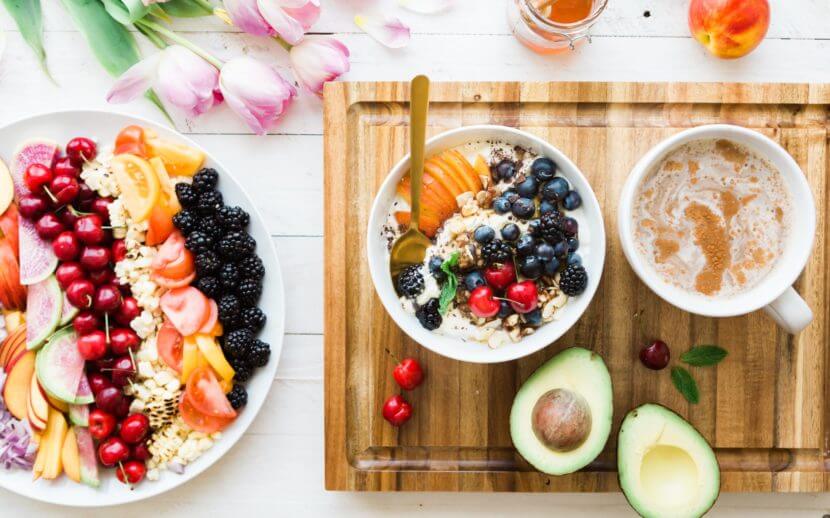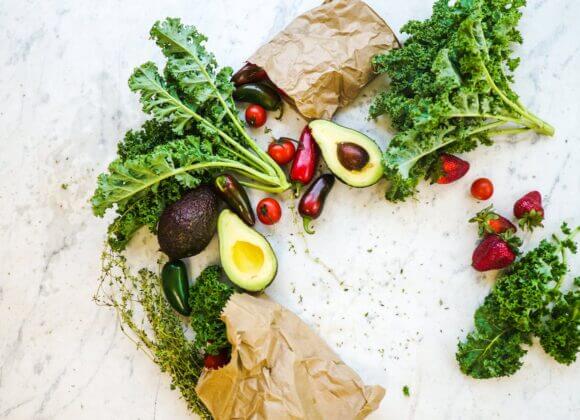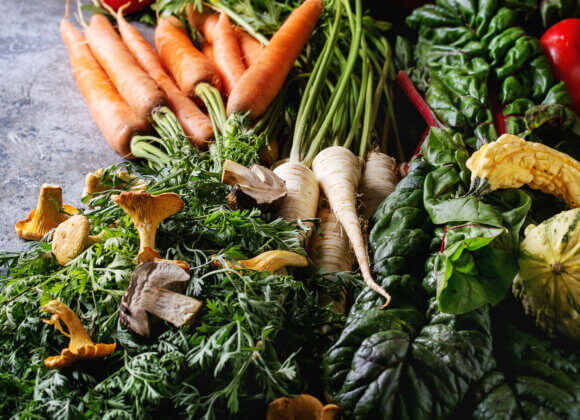Healthy nutrition increases performance
We’ve all heard the phrase, “You are what you eat.” What we eat has a significant impact on our health and well-being. But what is meant by healthy eating anyway? And what benefit do I get from eating a balanced diet? To get a better insight into this topic, we interviewed dietician Theresa Vierlinger, BSc – who follows the motto “Nutrition i(s)st the first medicine”.
What is meant by “healthy eating”?
Finding a definition for healthy eating is not easy, as there is no single meaning for it. Also, it can be something different for everyone. What is certain, however, is that healthy eating does not mean going without.
There are a few elementary tips, however:
- Eat the rainbow
- As for vegetables and fruits, it makes sense to combine as many different types as possible. This is how you achieve a variety of vitamins, minerals and trace elements
- Abundant unsaturated fatty acids
- Unsaturated fatty acids, especially the omega 3 fatty acids, have numerous positive effects on our cardiovascular system and our brain.
- Rapeseed oil for cooking, olive oil or linseed oil for salads, nuts and seeds in yoghurt, fatty fish for lunch
- Moderately saturated fatty acids
- The saturated fatty acids contained in animal products should be limited, as they can have negative health effects in high quantities.
- Prefer low-fat meat such as turkey, eat sausage products rarely
- Long-chain carbohydrates from whole grains
- In contrast to white flour products, whole grains contain valuable dietary fibres, which allow the blood sugar level to rise slowly, make you feel fuller for longer and are beneficial for digestion.
- Include calcium-rich dairy products daily
- Curd cheese, yoghurt or cheese are essential for optimal bone health and should therefore be consumed daily.
- Secondary plant substances
- Pulses such as chickpeas, lentils or tofu are becoming increasingly popular and not without reason. Prepared correctly, they not only taste great, but also provide us with many important secondary plant compounds that keep us healthy.
- Choose favorable preparations
- Instead of deep-frying, use preparation methods such as frying with little oil, steaming or simmering. Pro tip: Use a well coated pan that requires little oil while not burning anything.
If you follow these simple but useful tips, it is not very difficult to stick to a healthy diet as a beginner.
How to start a healthy diet
The first step to a healthier and more balanced diet starts in the mind. After all, healthy eating is not a diet that is followed for a few weeks, but a long-term way of eating that you also enjoy. It doesn’t make sense to try to put all your new eating habits into practice at once, but in small steps. Thinking about how and what exactly you want to implement plays a role in this. Step by step you can try to incorporate more vegetables, eat more whole grains or simply eat more consciously. This already begins with the purchase, up to the conversion of meals. A healthy and balanced diet is a way of life where you can feel its effects on your own body.
Healthy nutrition increases performance
When the body is adequately supplied with nutrients and minerals, it can adequately manage all bodily functions, which includes performance. A filling, healthy breakfast of oatmeal cooked in milk, with banana, walnuts, flaxseed and nut puree is therefore an efficient start to the day to boost performance. Because eating long-chain carbohydrates in combination with protein and a portion of good fats is recommended. Wholemeal bread with cheese and vegetables or a yoghurt with flaxseed and banana are also very good options.
A breakfast consisting of white bread with butter and jam, for example, is likely to cause a rapid rise in blood sugar, followed by a rapid drop, which can be characterised by a decrease in concentration, ravenous hunger and tiredness.
The secret of the superfood oats
Oats are definitely one of the recommended superfoods. Oatmeal contains a special dietary fiber – beta glucan, which is the key substance in oats. The effects of Beta Glucan speak clearly for the small flakes.
- Slow rise in blood sugar -> this avoids cravings due to a rapid drop in blood sugar levels
- Reduction of blood fat values (especially cholesterol)
- Long saturation due to the complex carbohydrates, in addition oat flakes are an optimal source of energy in sports
- Formation of a viscous consistency in the stomach and small intestine -> it acts like a protective layer for the stomach and can have an alleviating effect in case of stomach pain or reflux
- Positive influence on the microbiome (totality of all co-inhabitants in the intestine) -> can stimulate the multiplication of bacterial strains that have a positive effect on the intestine
- Promotion of the immune system
- Taste incredibly good: whether in porridge, as overnight oats, in soups, in pastries, in cakes or as oatmeal loaves.
Finally, we have Fr. Vierlinger asked a few more questions about “healthy eating boosts performance”.
Are there certain foods I should eat daily for a healthy lifestyle?
“Some nutrients and minerals are essential for the body to perform its everyday tasks to the best of its ability. To ensure this, the body needs daily vitamins, minerals and trace elements, which are present in large quantities in vegetables and fruit, for example.
Furthermore, it needs healthy fats, for example to build up hormones or to regulate our heat balance. The unsaturated fatty acids contained in nuts, seeds, vegetable oils and fish, for example, play a particularly important role here.
In addition, the body needs daily protein, which is contained in meat, fish, eggs and dairy products, but also in plant sources such as legumes (chickpeas, kidney beans, lentils), tofu or seitan. Protein plays a role not only in muscle building and muscle maintenance, but also in the immune system or in the transport of various substances through the blood.
Long discredited, but still very important group of nutrients are the carbohydrates. In the meantime, we know that carbohydrates neither make you fat nor ill, but are very important for the supply of energy. However, there are different types of carbohydrates where the focus is on the complex carbohydrates. These include, for example, whole grain products, oats, potatoes or legumes. Complex carbohydrates consist of long chains, which means that the body takes longer to break them down and therefore the blood sugar level rises more slowly, which means that you are able to work harder and feel fuller for longer.
Now, if you try to compose your meals daily from complex carbohydrates, a portion of protein, a healthy source of fat and a wide variety of vitamins, your body will be adequately supplied.“
What would be, in your opinion, 5 tips to be at your best?
- Eat a varied, balanced and less processed diet
- Don’t stress yourself out too much and treat yourself to something
- Do not forbid yourself anything and eat mindfully
- Drink enough
- Do not forget exercise
Is there a quick and easy way to get healthy recipes when I can’t think of any myself?
“Yes, because luckily there are now countless recipes on the internet and on social media. I also post new recipes and nutrition info weekly on my Instagram and Facebook channel (@dergsundeweg). If you feel like it, feel free to stop by and try out some simple, healthy recipes.“
To help you in another very important area of life, housing, we have compiled the most important links here:
Landlust: Luxury real estate in the countryside
Urban: Luxury properties Vienna Urban
Villa location: Luxury properties Villa location
For ski fans: Luxurious living for ski fans
On the waterfront: luxurious living on the waterfront
Hotel service: Luxurious living with hotel service
Exquisite view: Luxurious living with an exquisite view
For golf fans: Luxurious living for golf fans
Classic elegance: Luxurious living in classic elegance













